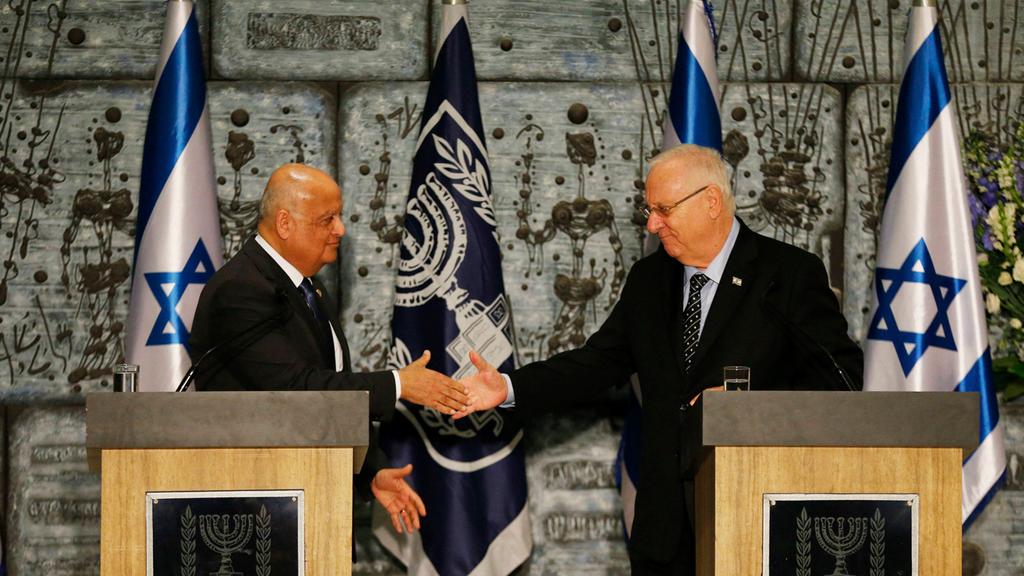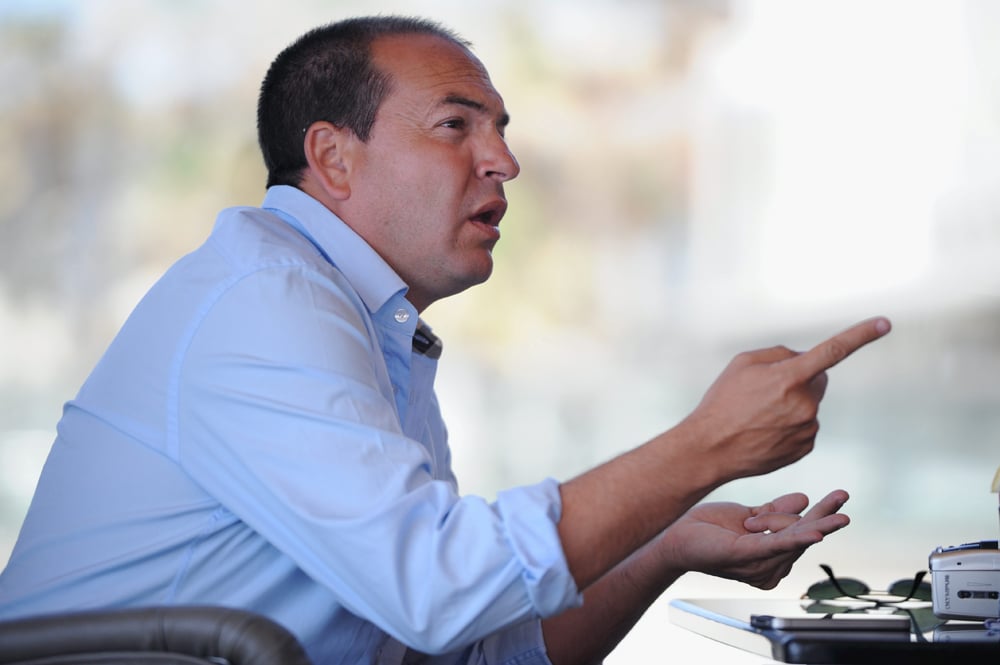The debate over Israel's anthem is making headlines again.
The modus operandi is the same as it has always been: Find a non-Jewish public figure who stands during Hatikvah out of respect, and condemn them for refusing to speak out against the anthem.
In the past, it was Supreme Court justice Salim Joubran, today it’s the captain of Israel's national soccer team, Bibras Natkho.
Soccer legend Eyal Berkovic - supposedly a former national team coach candidate – said in an interview that those who refuse to stand for the anthem should not captain the team, regardless of their level of skill or leadership.
According to Berkovic, standing for the anthem is a moment of patriotism, strength, longing for Zion, and connection to one's inner Judaism and roots.
I won't deny, such a moment could indeed be powerful and sentimental.
Only few Israeli eyes remained dry while the Israeli anthem played in Dubai after Judoka Sagi Muki won gold in the Grand Slam Judo tournament.
4 View gallery


Former Supreme Court Justice Salim Joubran shaking hands with President Reuven Rivlin
(Photo: Reuters)
However, non-Jewish citizens like Natkho feel excluded no matter how patriotic they are because the anthem fails to even mention their link to the country.
A person's link to Israel changes between the different populations that together make the country what it is today.
That is the reason why the anthem gets criticized so often - and not just by Arabs, Druze, Circassians, or non-religious citizens - but also by Jews from Islamic countries, for whom the anthem's words reflect the experience of European Jewry.
Demanding a person to sing the anthem at all costs ignores this sense of belonging the anthem's lyrics and deeper meaning are supposed to have, which stem from particular Jewish values that cannot be simply conveyed by reciting a few lines.
The words, "the Jewish soul yearns, and toward the eastern edges, onward, an eye gazes toward Zion", not only lose their meaning when sung by someone who does not believe them but also tarnish the idea of longing and longing for a Jewish state in Zion.
One way out of this catch is to write an alternative national anthem that will allow those feeling excluded by the current hymn to partake in state ceremonies and shed a tear of excitement.
The anthem should aim to appeal to Israel's many facets, allowing everyone to take part, including Arab athletes, Arab judges, soldiers, and others.
We won't be the first country to have two anthems. New Zealand has one in English and one in Mauri, each with different words and different meanings.
minister
This ensures every New Zealander finds their connection to the country when singing the anthem.
The people of the Druze town Daliyat al-Karmel, where I was born, take great pride in the fact that poet Naftali Herz-Imber wrote Hatikvah during his stay there.
Despite the long-standing historical connection that this anecdotal detail symbolizes, it is not enough to force someone to sing the anthem.
Quite the opposite. It tasks us with finding an anthem for everyone.
Fadi Maklada is a Druze activist and an officer in Intelligence Unit 8200.



